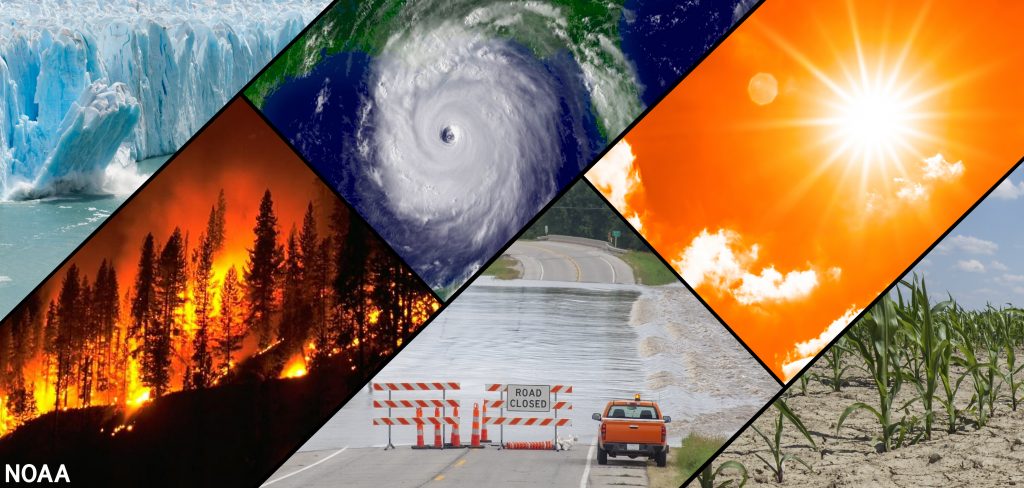
As anyone who follows the climate news is aware, July 2021 was the hottest month on record for our torrid little orb, according to the National Oceanic and Atmospheric Administration (NOAA), with a combined temperature 1.67 degrees F higher than the 20th century average of 60.4 F.
NOAA noted in a Friday press release that the previous record was set in July 2016, and tied in 2019 and 2020. But as Bill Frezza, a sharp-eyed reader of Retraction Watch noticed, the agency’s website tells a different story. This press release, dated Aug. 15, 2019, and still live on noaa.gov, proclaims July 2019 to be the hottest month on record for the planet:
The average global temperature in July was 1.71 degrees F above the 20th-century average of 60.4 degrees, making it the hottest July in the 140-year record, according to scientists at NOAA’s National Centers for Environmental Information. The previous hottest month on record was July 2016.
Of course, in a period of global warming, over time we’d expect the average temperature of the world to, well, warm. But 1.67 is decidedly not greater than 1.71, so either this July was the warmest month on record or it wasn’t.
We put that question to NOAA’s press office, and got this response, attributed to the agency’s climate experts:
NOAA National Centers for Environmental Information calculates the global temperature anomaly every month based on preliminary data generated from authoritative datasets of temperature observations from around the globe. The major dataset, NOAAGlobalTemp version 5, updated in mid-2019, uses comprehensive data collections of increased global area coverage over both land and ocean surfaces. NOAAGlobalTempv5 is a reconstructed dataset, meaning that the entire period of record is recalculated each month with new data. Based on those new calculations, the new historical data can bring about updates to previously reported values. These factors, together, mean that calculations from the past may be superseded by the most recent data and can affect the numbers reported in the monthly climate reports. The most current reconstruction analysis is always considered the most representative and precise of the climate system, and it is publicly available through Climate at a Glance.
Our follow-up question: Any plans to add a note to the July 2019 release, or update it? We’re standing by.
Like Retraction Watch? You can make a one-time tax-deductible contribution or a monthly tax-deductible donation to support our work, follow us on Twitter, like us on Facebook, add us to your RSS reader, or subscribe to our daily digest. If you find a retraction that’s not in our database, you can let us know here. For comments or feedback, email us at [email protected].
Elections have consequences…and our Enemies are making their calculations
Maybe government scientists should stick to doing science and stop worrying about issuing press releases for “maximum effect.”
Yes, for NOAA, data are not as stable as one might suppose; each datum might change each month.
One source plots monthly how NOAA’s NCDC has represented the difference between the Januarys of 1915 and 2000 since May 2008.
http://www.climate4you.com/images/NCDC%20Jan1915%20and%20Jan2000.gif
Rather than the title beginning with ‘It’s Official…’, it should begin with ‘Pending Subsequent Reconstruction…’.
At any rate, is one one thousandth of a reconstructed degree really news worthy?
I have found the blasé reaction to this rather fascinating. Even accepting the notion that there is no problem with NOAA altering its historical data to enhance the sensationalist narrative, the idea that a twenty-five thousandths of a degree increase per year across two years in the “Record Hottest Month in All of History” should trigger screaming global headlines about impending catastrophe rather than the calmer observation that such temperature “records” seem to be flattening speaks volumes.
Where do you get the idea that these temperature records are “flattening”?
And what is your evidence that NOAA is “altering its historical data to enhance the sensationalist narrative”?
I am in particular interested in getting evidence that this was purportedly done to “enhance the sensationalist narrative”.
It is not for the sensionalist narrative, NOAA is not in media business it is in increasing bureaucracy and power of Government business. The more problems that exist real or manufactured, more power.
There are no checks and balances to this mechanism.
Well, the obvious question to you: can you please provide evidence that NOAA is “in increasing bureaucracy and power of Government business”. Data and analysis methods are open to anyone with the required expertise and NOAA’s analysis does not differ in a meaningful way from that of BEST, a *university* product, so not only are there checks and balances, we have others with very similar findings that cannot be accused of being in the supposed “increasing bureaucracy and power of Government business”.